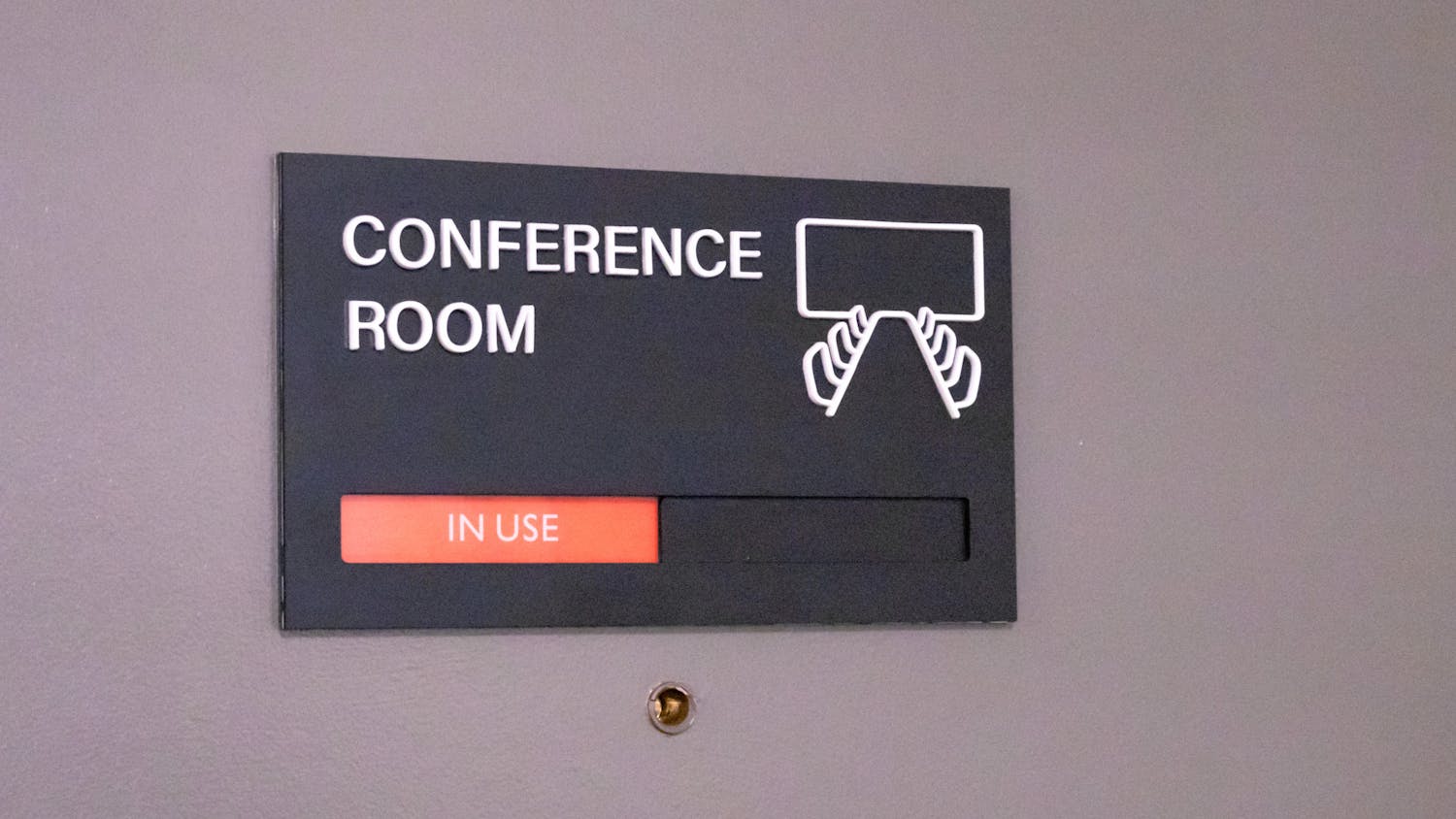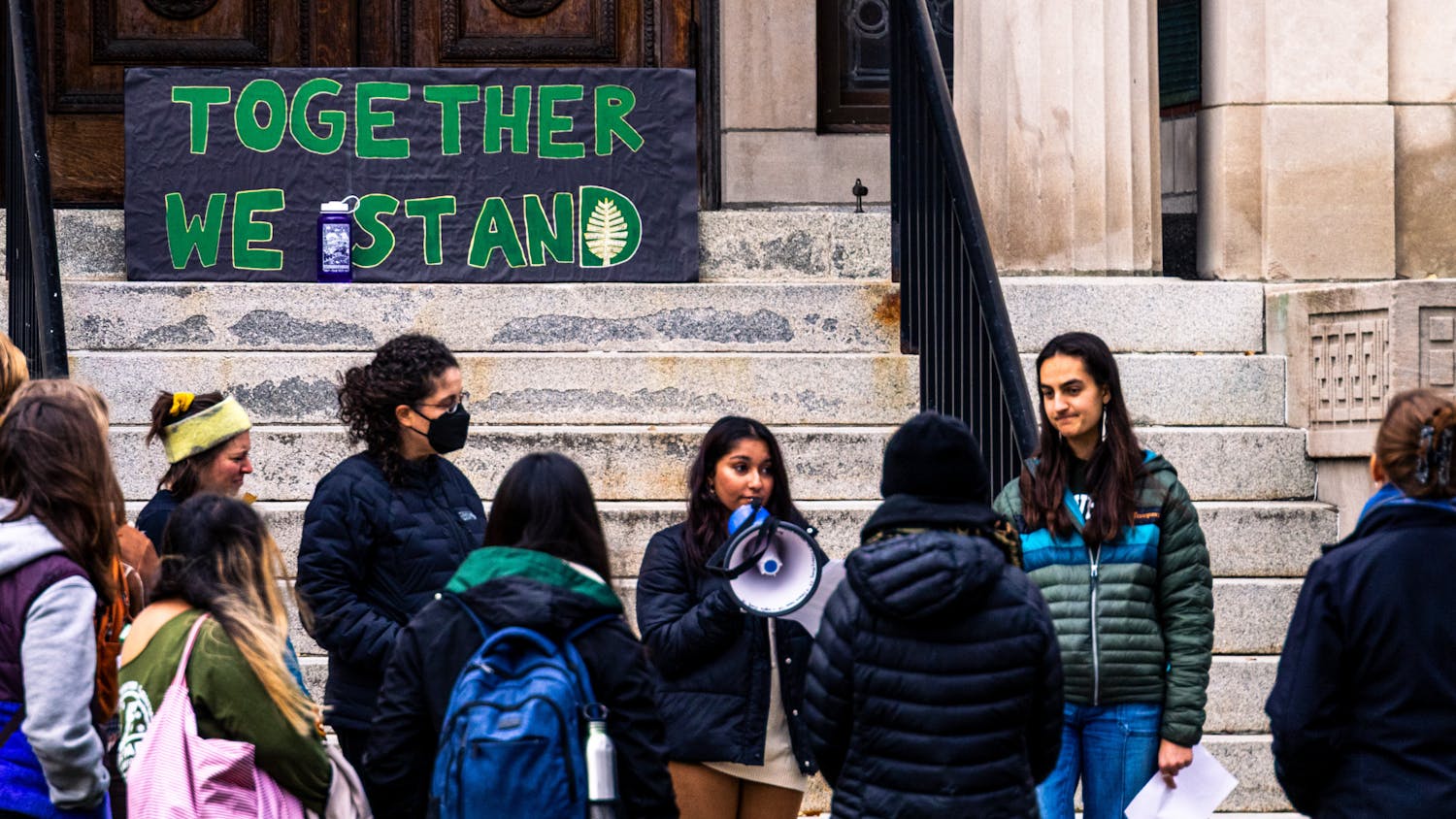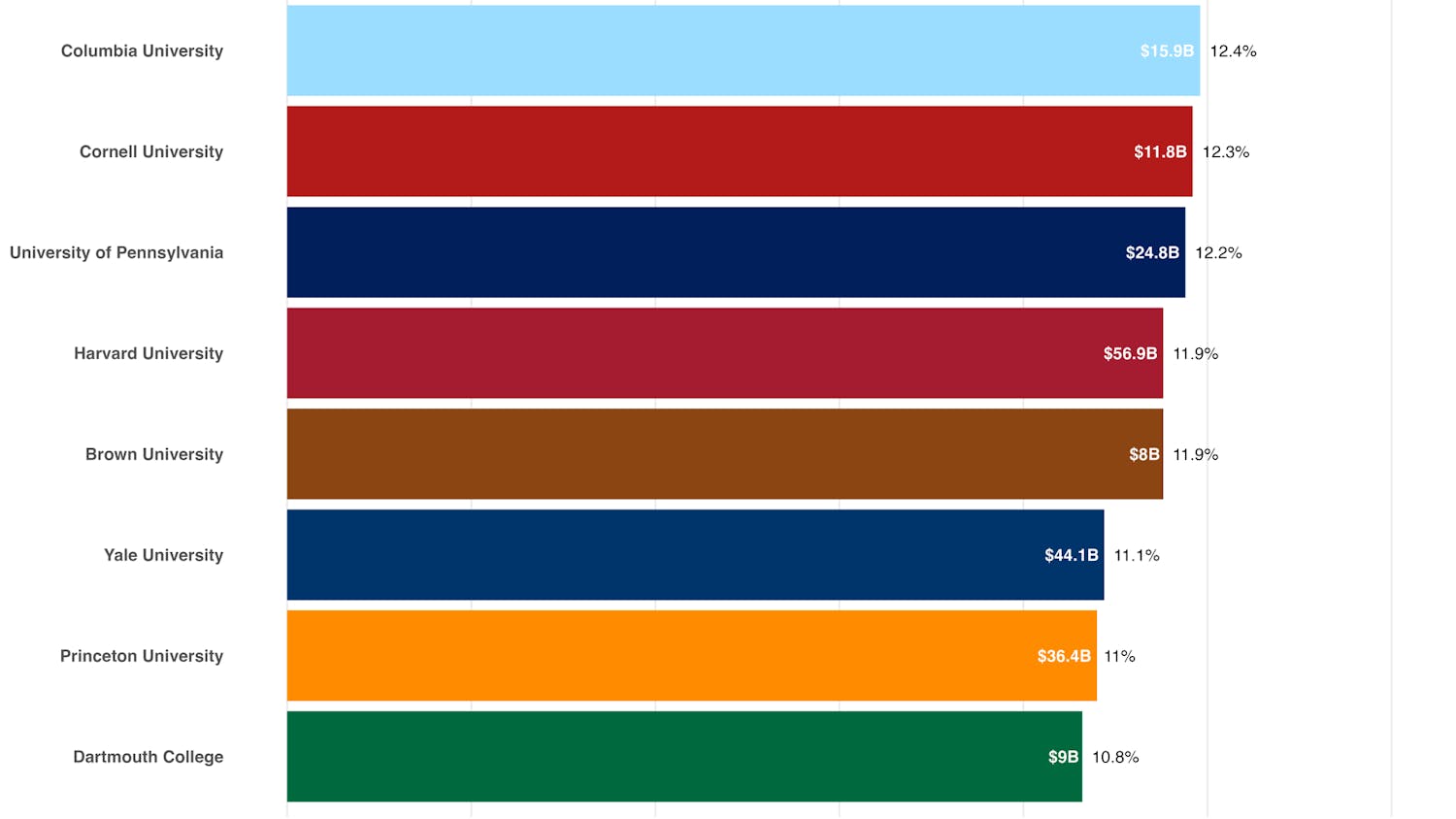Dartmouth students like their sleep, but that's only one consideration departments make when they schedule their classes for the coming term.
"In my world, it's called 'bunching,'" College Registrar Polly Griffin said. "Mid-morning is preferred by everybody: students, professors, departments -- 10 and 11 are our most frequently requested timeslots."
An earlier study of all room usage by hour released by Griffin's office showed that about half of all times in which rooms are being used fall between 10 a.m. and 1 p.m., with peak usage around 10 and 11 a.m.
She noted that all colleges show the same trend. "This is not a Dartmouth issue -- this is a faculty and students issue."
Griffin also suggested that the mid-morning time was optimal for students.
"It's not so early that you have to get up and feel groggy, but it's still got that fresh morning feeling," Glenn Buchberger '04 said of the popular 11 timeslot.
The Office of the Registrar has very little influence on the scheduling of classes except to sometimes inform a department's faculty if the type of rooms they need are scarce at a particular time.
Instead, requests for specific timeslots for classes are made by individual departments.
Department chairs all listed the same few factors in their departments' decisions when to schedule courses.
The most important factor cited by department chairs was either faculty preference or historical precedent, depending on the individual department.
"We're a small department, so it's pretty easy to spread around so we don't conflict with each other's courses," Sociology Chair John Campbell said. "It's up to individual faculty what particular times they want to teach in."
Other departments appeared less flexible.
"If we feel there's a reason to change the time of a course, introduce a new course, there's usually an examination of other department's courses to prevent serious conflicts," Chemistry Department Chair Dean Wilcox said. "We tend to stick to historic times that have been around 20 or 30 years because those have been worked out for a mutually agreeable schedule" with other departments.
Several department chairs also pointed out that using historic times let students, especially majors, schedule their courses more easily.
Another factor cited by department chairs was preventing classes from conflicting or competing with each other for students with similar interests, especially majors.
These conflicts would usually be negotiated between faculty and department heads individually or settled in department meetings.
Department chairs also said that certain kinds of classes worked better at particular times.
For example, Spanish language courses are always scheduled in the mornings because the Spanish and Portuguese Department had found it was the most effective time to teach language courses, according to Marsha Swislocki, the chair of that department.
Chair of Religion Ronald Green said he would not schedule a smaller seminar in a 2A or a lecture in a 3A time slot.
The other factor, not cited by all department heads, was faculty getting "the number of students they want in a particular course," as Green said.
Most department heads said they would not schedule a course in a particular spot just to attract more students to it.
However, Green explained that "everything is a question of tailoring a course to what you want it to do."
Green praised Dartmouth's scheduling structure, calling the often-useful X-hour "the best invention since sliced bread."



